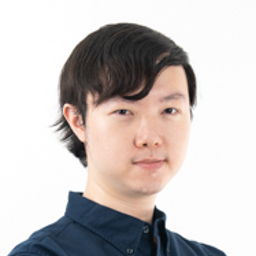'We should not rush this': Tharman on LGBTQ matters in Singapore

 PUBLISHED ONAugust 26, 2023 12:50 AMByKhoo Yi-Hang
PUBLISHED ONAugust 26, 2023 12:50 AMByKhoo Yi-HangRushing LGBTQ matters is "too risky" in our society, Tharman Shanmugaratnam said.
Presidential candidate Tharman, 66, was answering some questions submitted by guests at an election meeting at Pasir Panjang Power Station on Friday (Aug 25) evening.
"This is an issue where we had extensive consultations and deliberations before we did away with Section 377A — everyone knows that… the reality is we are not a society where there's a common view on this," he said.
"In fact, we're a society where there's quite a lot of views on this issue."
Citing generational and religious differences amid Singapore's "multi-phase society", he said that there are "broader social norms" that have "no common position" in society.
"Moving too quickly in shifting social norms is very likely to lead to a pushback, to people feeling provoked and leading to more dissention in society," he explained.
Instead, social norms should evolve at a tempo that is to be determined by society and future generations.
"We should not rush this," he said. "It is honestly too risky in a multireligious society, and it doesn't mean that in the meantime, we regress."
However, Tharman also warned: "But be very careful with how we evolve our social norms, because it's not just a matter of our individual views, but a matter of keeping society together."
He levelled that the position he's taken in this discussion "will not satisfy everyone". But it is the "most sensible position to take to avoid society becoming more divided", he explained.
Tharman and his wife, Jane Yumiko Ittogi, also shared their views on whether Singapore is ready to accept a non-Chinese Prime Minister.
"The answer to that is before your eyes when Singapore has a non-Chinese President," said Ittogi, 69.
Meanwhile, Tharman stated that he feels Singapore is ready for a non-Chinese Prime Minister.
Referring to Obama's time as President of the United States, Tharman said that race is a factor in politics across the world. However, Obama was able to overcome difficulties stemming from race.
"[Race] is not the only factor," Tharman said, adding that he believes Singaporeans today look at more than just race.
"If someone comes up with a superior candidate for Prime Minister, that person can be made a Prime Minister, I believe in that," he explained.
"It's a mark of progress as a society."

When asked for his thoughts on quotas for women in positions of power, Tharman noted that women in Singapore do very well in academics and in their working life.
But when it comes to leadership positions, "women are underrepresented at the very top," he said.
Although some may hold high positions in larger companies, it's still "not enough".
Expressing that the President shouldn't get involved in policymaking, Tharman said that the issue can be addressed on a cultural level.
"We've got to respect family, respect the need for husbands and wives to spend enough time with the family.
"And I believe that will help women in particular; it's about flexible working arrangements, but it's also just a broader culture."
[[nid:644718]]
He further shared his support for the idea of allowing people to take time off from work — for a few years — and returning to it with support and training, so that there will be no disadvantage in their career progression.
Tharman also emphasised the importance of homemaking as part of society, stating that an absent or insufficiently attentive father would put stress on the mother.
He said: "We have to pay a lot more attention to supporting homemakers, supporting a culture of gender equality at home as well, not just at the workplace."
There's a "significant growth" in the number of elderly people in Singapore who live alone, Tharman said.
He gave suggestions of what could be done to help the elderly maintain an active lifestyle with others around them, and staying healthy.
"Most people who are older today had much tougher lives than most people who are younger today," Tharman said.
Citing the "relatively low pay" that many elderly would have had and their subsequently insufficient savings, he stressed that we should "respect the fact that they've had such a different life".
Because it was their efforts that helped Singapore get to where it is today, the current generation of people ought to respect them and sympathise with them more, Tharman said.
Therefore, there is a need to take society towards becoming truly "senior-friendly", he said.
"Because that's going to be your parents; that's going to be, eventually, your children's parents. That's going to be all of us."
No part of this article can be reproduced without permission from AsiaOne.